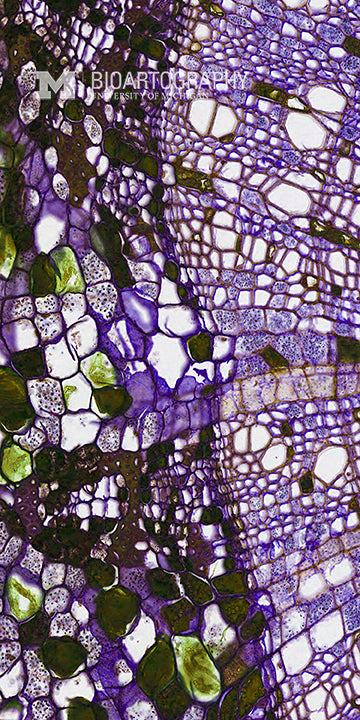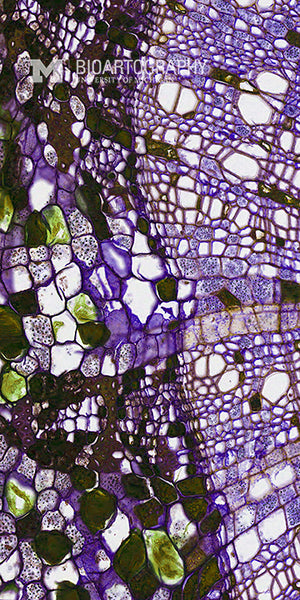

Mathew Velkey, Ph.D., Lecturer, Department of Cell and Developmental Biology, University of Michigan Medical School
This is an image from the growth zone of a three year-old American basswood tree (Tilia Americana). The lighter purple region contains xylem vessels, hollow cells lined end to end that function primarily to transport water. Next to the xylem in the darker purple is a layer of phloem that contains cells specialized for transport of nutrients and proteins (clear) surrounded by fiber cells (dark green) that provide structural support. The region between the xylem and phloem is called the cambium. It contains stem cells that give rise to both xylem and phloem. These cells provide for the growth of the tree. Amazingly, plants exhibit some of the same stem cell differentiation and growth mechanisms seen in animals and can provide insight into animal stem cell biology.
